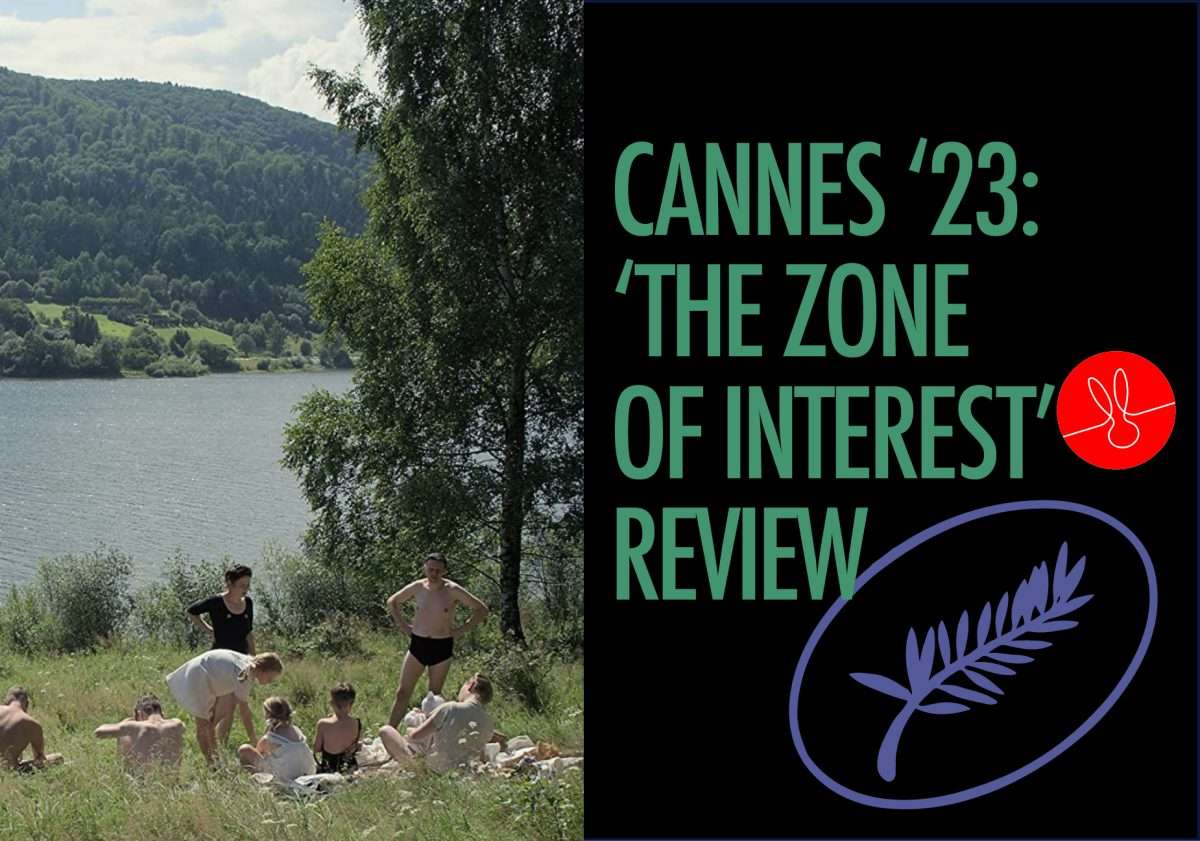
The Zone of Interest is a horror movie wearing the guise of a slice of life-esque domestic drama. Jonathan Glazer’s long-awaited latest is no less distressing than his previous film—the 2013 masterpiece Under The Skin—and though he’s traded the gloomy Glasgow setting of his sci-fi feature for the idyllic calm of the Polish countryside, barely concealed beneath the surface lies an unyielding exposé on the pitch black soul of humanity.
The film follows a family living a generally peaceful existence at their home in Auschwitz, the patriarch of which is soon revealed to be Nazi commander Rudolf Höss, stationed there to oversee and implement the operation of the extermination camp just beyond their garden fence. We follow the daily rituals of Rudolf, his wife Hedwig, and their three kids, as the tragedy of the Holocaust rages, mostly unseen but very much heard, in the background of a Polish summer.
With Under The Skin, Glazer cemented himself as a master of the audio-visual, and The Zone of Interest, reuniting the filmmaker with experimental pop musician and composer (and bonafide genius) Mica Levi, not only surpasses the mastery of the audio in Skin but reinvents itself in awe-inspiring new ways.
Glazer and Levi have weaved sound and image in ways that shake the bones at moments you least suspect. The tranquillity of a garden, the trickling of nearby bodies of water, and the sounds of birds working on a cool summer day are interwoven with earth-tremoring bass, twisted, screeching synths and the marriage of screams and gunshots in the distance; the beauty of nature coming in violent collision with the destruction wrought by evil men.

The Nazi family at the film’s centre is purposefully drawn by Glazer as you might expect any regular middle-upper class family to look. They enjoy the same normality of everyday life and the privileges of a mundane existence; Rudolf plays with his baby boy in a brand new canoe gifted to him on his birthday, and Hedwig entertains her mother with a tour of their carefully curated flowerpatch. Every now and again, those moments of domestic bliss are interrupted by daunting reminders of the Holocaust taking place just a few miles away—the aggressive whistles of a steam-train carrying a new batch of victims, or the industrial rumblings of the camps as they release ash into the air—, violent awakenings that will leave you with feelings of dread that might just follow you out of the movie theatre and cling to you for the rest of your day.
It says something of Glazer’s expertise of his craft, and his open collaboration with Levi, that he is able to reveal more about the realities of the Holocaust with simple cues of sight and sound than he is by directly showing us the tragedy itself unfold—distancing his lens from the event in order for us to fully realise the indifference and terrifying apathy of that time in history. The film’s final sequence is a harrowing act of cinematic time travel that brings the entire movie into perspective, and proves beyond a doubt that Jonathan Glazer and The Zone of Interest belong to the big screen.





